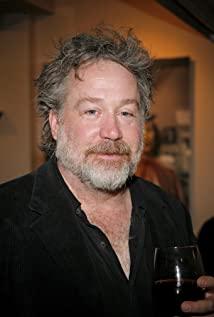Seeing this, I understand that this is not really a comedy with only laughter. Harold's life is a fox, life is so simple and withered, every day is the same, day after day, year after year, the lost emotion has nowhere to express, but can only be hidden under the appearance of calm. His life is too precise and unchanging, people look forward to a new day, he never, he knows everything that will happen.
Forget it, I really lost to the screenwriter, and I am really good at discovering poetry in sadness.
"Then live the life you've always wanted," says literature professor Julius Herbert.
People's wishes die in life and are remembered before they die. Hopefully, when we think about it, it won't be so desperate. Just like Harold.
Harold's quiet life is coming back to life, he's doing things he's been afraid to do before, and trying to enjoy them.
He bought a guitar, he adjusted the strings, he sang with a light voice; he stopped counting the steps of the stairs, the number of times he brushed his teeth, the time to get up; he tried to go on dates, to taste fresh love. His life is no longer precise, but full of meaning to live. When Pascal kissed him passionately on the lips, his stage began to burn. It became a story of silent steel.
On the same parallel line, the life of female writer Karen is completely different. She was always experiencing death, everywhere. She imagined falling from a tall building, driving down a bridge rail, searching for a dying patient in a hospital. She was frail and neurotic in her own right, and seemed to be dying at any moment. Her writing is a painful outpouring, full of death fantasies. What she pursues is a poetic and profound death. She was wrestling with how to kill her Harold, and she seemed to be getting some kind of revelation from an apple rolling down a slope.
She wrote on her typewriter: "Harold picks up the third phone...with a hard press on the number keys each time." The phone in her room rang, and she thought of a previously unknown possibility, The imagining frightened her. She paused and wrote again: "..." The phone ring rang again. She tried again, and the phone rang a third time. Half excited and half scared, she picked up the microphone, and the reality suddenly became psychedelic in front of her eyes. "Hello?" "Is that Karen Ive?" "Yes." "My name is Harold Crick, and I believe you're writing a story about me."
Harold got Karen's Manuscript, but afraid to face and dare not read. He took the manuscript to seek the help of Julius Herbert, a professor of literature, for useful advice. The answer was: "Unless you die at the end, this is a good book. I have read it over and over again...I know how hard it is for you..." Harold began to seriously think about the meaning of his own death, Sitting on the bus, he forgot the time, read Karen's manuscript in one breath, and finally made a certain decision in his heart. He greeted Karen and told her, "I love your book, and I think you should finish it."
Pascal had a childlike innocence that usually lurks in the background. Only on a night full of romance, under Harold's tender eyes, will it be clearly revealed. Little did she know that that wonderful night would be the last time she saw Harold. Because in the coming morning, everything will end.
The dawn is full of obscurity and the unknown, and a decision has not yet been made about how death will come. What lies in Harold's heart is a trace of concern, a trace of grief, a trace of helplessness, and a trace of poetic beauty. He remembered how when he was young, the bright sunlight in the morning shot through the window screens to his sleepy eyes.
Writer Karen's text continues horribly in the narration: "Harold has changed a lot over the past two weeks: the way he walks, the habit of counting, his love life, but the most important of all these changes , maybe on his way to work today...he didn't miss the Kronecker bus at 8:17...what Harold didn't know was that on Wednesday four weeks ago, the time he asked from passers-by was, in fact, more The actual time is 3 minutes later. So the time is 3 minutes later than the time set in his previous life and on the watch. Not the worst mistake, but if Harold didn't set his watch to the wrong time , Harold will again be just in time for the 8:17 Kronecker bus. And he won't be at the bus stop on this particular Friday... punctually at 8:14..."
Before the bus arrived, a The young blond boy was rubbing the road on his bicycle, not paying any attention to the impending crisis. Harold rushed out in an instant, saving the little boy from the brink of death, but he could not escape his tragic fate. He lay there, blood splattered all over the floor.
At the same time, the typewriter in Karen's hand stopped, and the word 'death' was not written. She covered her face hysterically and wept, unable to write anymore.
This is a story of a writer and a character who should have been just an unreal meeting in reality. This story deeply explores two aspects:
one is how people's wishes sink in life, and how should we go about it? Retrieving it; one is, when the words in our minds come into contact with reality, can death, which might otherwise be treated calmly, still have the same attitude?
View more about Stranger Than Fiction reviews











